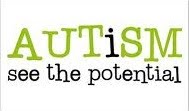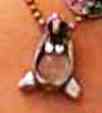|
Depending on my mood and how deeply I've probed the news headlines, I sometimes seethe at the cliche "it's the little things." It feels like a minimization of the very big, real, and not-okay shit going on in the world. There's a lot of that. All the time. Even &/or especially now. But, I'm tired this afternoon and I've avoided all social media efforts to put the news in front of me. I'm finding my creature comfort in these little things.
0 Comments
Every weekend, I draft a "to do" list. Every weekend, I put myself at the top of the list. The "me" part of the list is where I prioritize the activities and opportunities to tend to myself, baby-step toward my goals, and experience my senses and perspective. I use the list to guard time to journal, take a walk outside, or read a good book. One of my favorite me-tasks is "nap/do nothing." I give myself permission and something like credit for resting. "Do nothing" is actually a specific resting position where I lie on my back on the floor against my bed. I rest my calves on the bed, thighs perpendicular to the floor, back flat, arms stretched out on the floor, and a small pillow under my head. It's a little awkward at first! But, soon, I feel all my joints and muscles relax, as if I'm sinking into the floor. I remind myself to relax my face and jaw. My thoughts are the last bit to settle as my brain is busy with all the things I should be doing, remembering, or planning. Sometimes, it helps to imagine I'm floating on a gentle river. I feel the sun warming my front while I'm supported by cool water. All I can hear is the easy lapping of small waves. I've organized my weekends with lists like this for a long time. (Here's a snapshot of the practice 11 years ago!) But I haven't always started the list with me. I concluded weekend after weekend with a clean and tidy house, a meal-plan, and laundry folded and put away, but a worn out and irritated me. Sometimes, those weekends still happen, but, for the most part, putting "me" at the top of the list ensures that I consistently take very good care of myself. How do you prioritize yourself amidst the chores, responsibilities, and relationships of your life?
I've been thinking about this plant a lot, lately. It's a Golden Currant, a shrub native to the Pacific Northwest. When my son planted it, it was a delicate stem, about as tall as my pinkie. It was crowned with two, tiny, wrinkled, leaves. I didn't hold much hope for its survival. A few seasons later, it's a couple feet tall, boasts multiple branches, and it's decked with lush green leaves and dainty yellow blossoms. I'm impressed and delighted by its growth. It's flourishing and soon it will bloom. I think about this plant because of how beautifully it illustrates the development of a living organism, well-established in an appropriate climate, rooting into the soil where it is planted, sustaining each season's shifting resources, to then stretch, leaf, and ultimately bear fruit. It's the metaphor I return to when reflecting on our family. We are a well-established plant that began as a tenuous little sprout. The three of us have been in this house for six years. In recent months, I’ve recognized the depth and breadth of our growth and the benefits we produce together. The first place I see it is in N. I know that a lot of the changes I see in N are due to his own maturing with age. But that growth is supported by the place that we have reached as a family and the parenting that J and I practice. N is open with both of us about his feelings, concerns, goals, and successes. I used to worry about N’s relationship with J. I felt like I was bridging and mediating the two of them and all of their communication ran through me. Now, I overhear conversations and collaborations between them that have nothing to do with me. They have trust and rapport all their own. I also see changes in how J and I relate. A little over a year ago we thought our marriage was done, but N didn’t want us to separate and break up the household. So we each dug a little deeper into ourselves, as individuals, and our communication and connection as a couple. We have new habits that keep us talking about our inner, personal stuff, along with the day-to-day pragmatics of running a house and raising a young man. My favorites are the groggy early mornings together over coffee and the evening chats before bed. It’s as if that liminal state, between awake and asleep, we can be more honest, authentic, and sometimes silly, than during the more alert hours of the day. I’m savoring this new, established phase of our growth as a family. I love that N will choose that we sit at the kitchen table for dinner together, rather than hovering over the coffee table in front of the tv. I relish the days when we all play hooky from school and jobs, and we’re all at home working on projects or hanging out. I look forward to our vacations, exploring new places or revisiting familiar favorites, and photographing the requisite family selfies along the way. I’m grateful. I’m pausing to acknowledge and celebrate the attention, intention, and deliberate work that brought us from being three people occupying a house to an established family, engaged and responsive to each other, co-creating and sharing life together.
Now is a sweet spot in our home and family life.
Now is a clumsy, ambiguous, liminal time in my life. Do you recognize phases like that in your life? When you are betwixt, between, and on the cusp of something new-to-you. It’s taking forever, too long by my standards, to cross this threshold from who and how I am now over to who and how I will be next. It’s shaking loose my relationships, roles, emotions, daily tasks… Everything is rattling and springing leaks. I practice relaxing into it. I ease myself into my unraveling. I wonder/worry what and who will remain with me on the other side. This morning, I asked my husband how he feels about where we’re at. He said he’s “content.” I’m not. I’m discontent, chafing, bound too tightly into daily routines and this perpetual availability to others. It all feels increasingly like a facade for some raw and ravenous ruckus inside me. I am malcontent. I sound ungrateful. I insist that’s not it. I am so very grateful to have made this home for my son and my much loved friends. I really am grateful for the kindness and stability my husband brought into our lives. I promise I am grateful to have been supported enough to get to this place where our content family life simply doesn’t fit me anymore. No, it’s not about my gratitude. It’s about more. More open space in a day or a week for myself. More activities that actually mean something to me. More time with the folks who get me, who see parts of me that I don’t always recognize, who I enjoy, who celebrate, comfort, and connect with me. More creativity. More inspiration. More depth. More intimacy of all kinds. I’m not ungrateful. I’m not even selfish. I’m hungry as hell and this contented life, that I made, that I cultivated, isn’t producing enough nourishment for me. I’m hopeful and hopeless at the same time. I ache to let go and see who catches me. I’m tempted to free fall just to feel something different. I imagine hitting rock bottom and building something new in that place. But I won’t. I’m responsible. Nurturing. Patient. Resilient. I’m biding my time. I’m collecting my tools to design that new-to-me who and how to be. This is simply where and how I am now.
It's been just over a year since my last "now" posting. This is now:
Death, shedding an old skin to embody something new, churns stuff up. Death, in the form of change, releases into my consciousness old memories, emotions, and “stinkin’ thinkin’” from the past. It’s uncomfortable and disruptive. When I close my eyes to rest, dimly lit memories play in my mind. I hear the messages loud and clear, “You are immature and insecure. You are foolish. No good will come of you. No good will you experience. No good is your value.” I feel the memories in my body and emotions as if they are current and real. They aren’t and they are. The messages come from pained parts of me requesting my attention in the only way they can. As I shed old patterns or habits to practice something new and good for my life, the past begs to remain part of who I am. “Tend us,” the memories say. “Care for us as we have not been cared for before.” “Bring us with you.” Death would be more pleasant if I could leave the past behind me, delete it, taking only the lessons, spelled out in all caps and bolded, like crisp text. But my memories are more than tidy lessons. My past is stitched into my nervous system informing how I feel, react, and respond to current stimulus. Loosed from the memories, these sensations make no sense, they are meaningless pain, which I don’t know how to alleviate. Change that heals, change that lasts, requires some connection to the past. Death is a body of work that includes loving attention to the past. For me, that means deliberate and intentional practices to see and comfort old parts of myself. I imagine there are a variety of ways to do this. I’m using a combination of morning pages to get my insides out where I can see them and resting cozily with a hot water bottle to comfort my body at night. Has anything been shook loose while you were making significant changes in your life? How do you attend to those pieces?
I was first introduced to Tarot cards over 20 years ago. I had graduated from an Evangelical Christian college and was exploring new-to-me ways of doing spirituality with a spiritual director. One morning, she suggested we work with the Tarot. I was nervous, at first. Was this really an acceptable thing to be doing? Wasn’t this forbidden by our religion? We talked about those thoughts and feelings, and I relaxed into playing with the cards. I was surprised by the perspectives, questions, and insights raised by the process. I began to see the strengths of an eclectic set of spiritual practices. Soon after that experience, I purchased my first deck - the Motherpeace Tarot. I was attracted to the feminist representation of the archetypes, the evocative drawings, and the multicultural intent, which now feels a lot more like cultural appropriation. I’m not comfortable using that deck these days, but a few of the images still resonate with me. The illustration for Death continues to inform and secure my understanding of the card. In Motherpeace, Death is conveyed with a snake shedding its skin. Death is not a final end. It is a process of releasing what was to allow what is next. Shedding a skin is uncomfortable and requires effort. It is also natural and inherent to the life and growth of the snake. Death is a transition to engage and to do actively for the benefit of living and growing. I recently drew the Death card in a reading. I was using the Ethereal Visions deck, which uses Art Nouveau styled imagery to portray the archetype. I had a sense that it was about the end of a chapter versus the closing of a book, but what did that mean for me? It wasn’t until I looked at the same card in multiple decks that the message it conveyed made sense to me. Now, I know what I am shedding and I am working consciously, deliberately, with practice, to let it go. I am hopeful for the new life that is to be released. Is a part of you itching to be shed? Where might something new be emerging in who you are or how you live?
I'm working out my faith as one who hears the MADWOMAN's call. This is what I believe, today. Apostasy is a theological term for the renunciation of one’s religion. I didn’t grow up knowing this word or thinking about it. But I knew it was wrong or bad or crazy to reject the gracious gift of salvation from sin, eternal life, and the sacrifice of Jesus on The Cross. My Christian education was very clear about all of that. I didn’t want to be wrong or bad or crazy. I didn’t want to worry about Hell. Or reject a great and precious gift. Still, it was making me crazy claiming a faith I didn’t wholly possess. As a teen, I decided that it was normal doubt, a typical phase for an adolescent raised in the church, and took classes to bring me back to the core of the religion. When my father died, and I slid loose from clinging to his religion, those core beliefs couldn’t catch me. I landed hard. I surveyed what remained of my faith. Then, I started a slow, iterative, circling and cycling path to my own core beliefs. That included identifying and rejecting beliefs I’d been raised with and found vacant. For me, slow has meant years-long and riddled with more pauses than clarity. The process has been graced with good friends, good books, and a million pages of journaling. My apostasy began with simple, pragmatic, choices made from my gut. There were hymns I couldn’t sing anymore because of battle imagery or other language that neither articulated nor resonated with my understanding of good, the ineffable, and even the example of Jesus’ life. Soon, I took issue with lines of a creed or the tone of a prayer. There were entire sermons that left me cringing and crabby. Until I just didn’t go to church, anymore. There was nothing there for me but irritation and angst. I had to delete so much of the service that I was left with gaping holes where others gleaned instruction or comfort or community. I returned to church, briefly, in my mid-thirties. I was a new mother and aching for a community to share with and to receive support. The same script played out for me there. Vacancies developed within the services, as I closed my mouth from saying things I didn’t, and still don’t, believe. I wished I could play along to be part of the community there. But it chafed so painfully and I couldn’t settle in. I widened my search for “open and affirming” congregations and congregations with evidence of doing good work in the neighborhood or the city. I did find them. But the words, creeds, and sermons were in those places, too. After decades of resisting what I knew, intuitively, since childhood I turned inward to meet that message. I stopped fighting with the external definitions of God and Gospel. I listened closely to the good news I understood within me. I felt free to lay down each belief and practice that I denied. It released me from a binding tension, which had held me in one place in my spirituality. I entered into faith anew. Building my set of beliefs and actions. Finding my community one connection at a time. I finally accepted my apostasy, with a snicker and a smile, when I was able to also identify and claim my heresy. What is your apostasy? Play fast and loose with the idea. Don’t be limited to a particular religious instruction. Maybe it’s cultural canon that you are ready to lay down because it no longer rings true.
I'm working out my faith as one who hears the MADWOMAN's call. This is what I believe, today. I am a hot pink heretic. I worship god as the MADWOMAN in the attic. I honor and heed the Divine according to a metaphor of female madness versus a manmade structure of order and restraint. I honor and heed Her call in my emotions, the natural world, the good work of both cultural heroes and the unsung volunteer, my own intuition and discernment, in books I read. I am a hot pink heretic. I honor and heed teachers and prophets in the myriad places they appear. I receive their guidance in holy and secular texts, each sacred in its own way. I observe their good work in documentaries, newsletters, and intentional communities. I support their work with donations and sharing the good news of their good work. I aspire to live more like they do. I am a hot pink heretic. I believe in repentance and redemption of ordinary human lives in our ordinary world. I believe we honor the Divine best when we tend to each other, in all the ways. I believe that “all the ways” includes immediacy of family and friend circles, the wider circles of neighborhoods and municipalities, the circles of governance and economics, the circle of our living planet. I am a hot pink heretic. I am here, with you, in a messy world where very little and very rarely is anything crystal clear, black or white, good or bad, in or out. We are in this messy ambiguous world together. We live with wise teachings and wise teachers who illuminate how we all might live well together. I am a hot pink heretic. The manmade structure of order and restraint holds me against my will. I moan and bellow for how it hurts me. I call out to you, in hopes that you feel it, too. Do you perceive the misfit of this way of life, the rule of power, the old beliefs and practices that benefit so few and have been warned against by so many over centuries of prophecy and teachings and assassinated wise people? I am hot pink heretic. I hear the MADWOMAN’s call. “Burn it down.”
|
About Jenni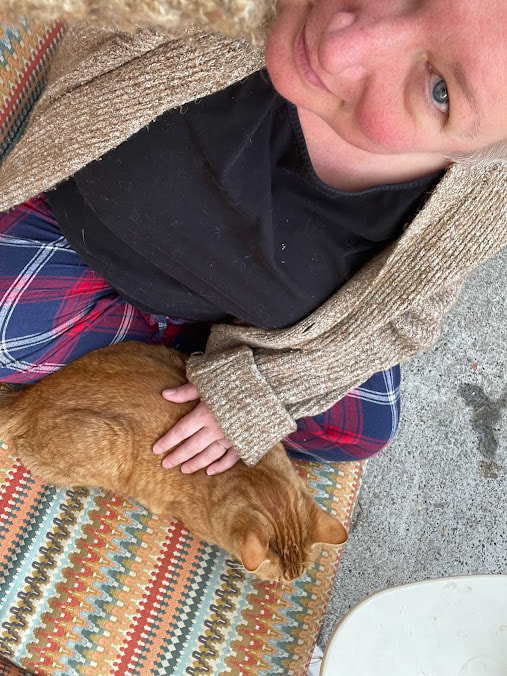 God is the madwoman in the attic.
I'm camped out on the threshold with my journal, camera, & plenty of snacks. God is the madwoman in the attic.
I'm camped out on the threshold with my journal, camera, & plenty of snacks.
Categories
All
Out of the Attic
This blog started in 2006
on Blogger as Out of the Attic. I began posting here in April 2014. Please visit the original site for the rest of the story on topics like: |



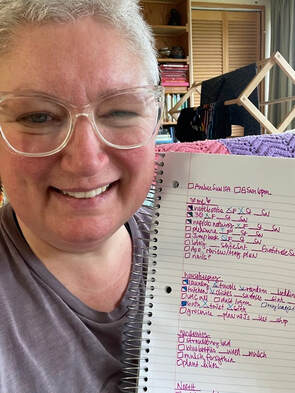
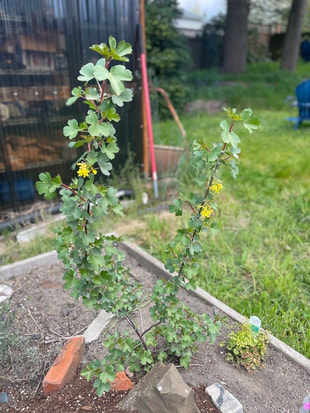

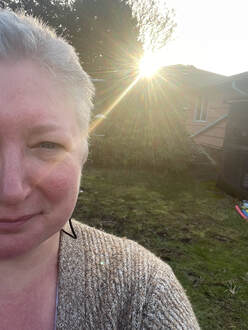
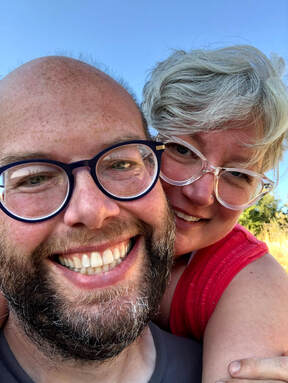
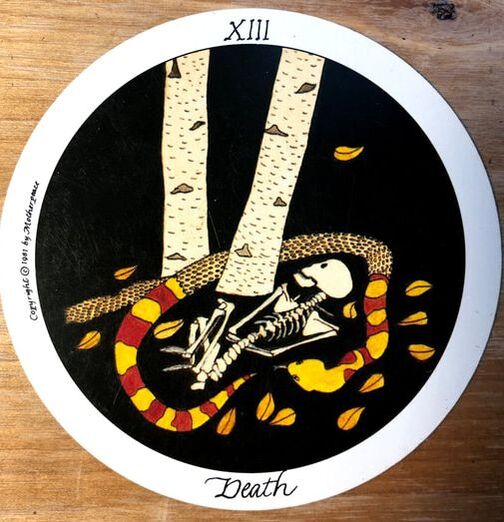
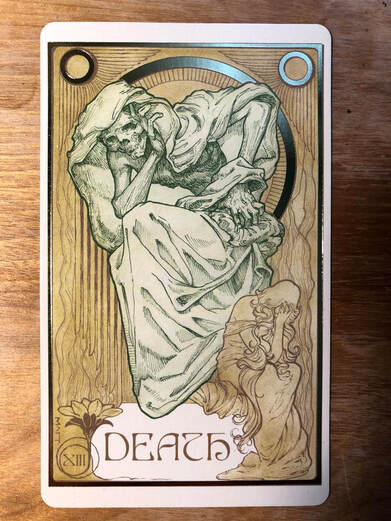
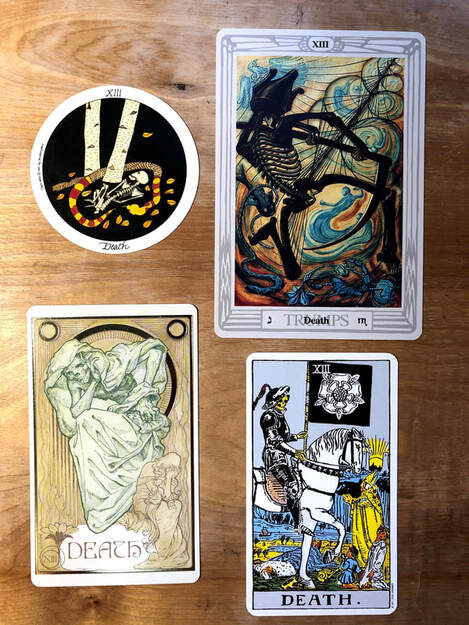
 RSS Feed
RSS Feed
